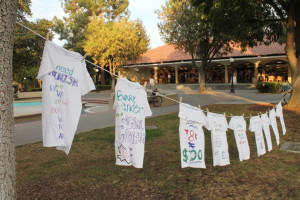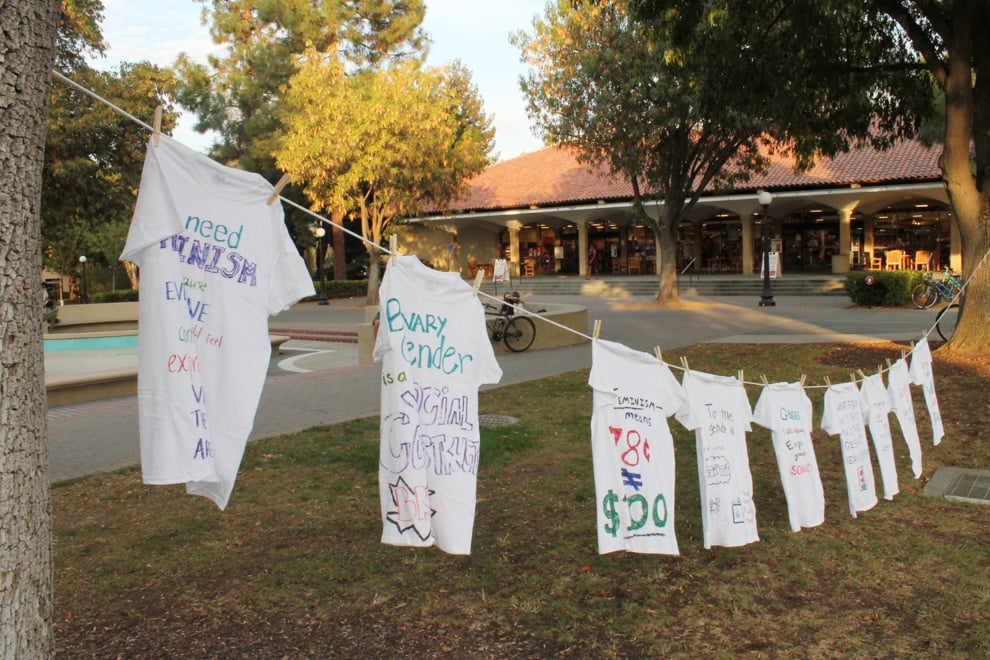
At start of this month, Stanford released results of a climate survey showing that 40 percent of female undergraduates reported experiencing some form of sexual misconduct.
This past Wednesday through Friday, Stanford’s Women’s Coalition partnered with The Clothesline Project, a program aimed at combating domestic violence, to create a dialogue about these issues by physically hanging them over students’ heads in White Plaza—in the form of cotton white t-shirts.
The Clothesline Project began 20 years ago as a vehicle for victims of sexual abuse to express their emotions by decorating a t-shirt and showing the public the problem of domestic violence.
“The idea is that you write your experience on a t-shirt and get it off your chest,” said Hannah Meropol ’16, president of the Women’s Coalition. “It makes it public, but it also takes the burden off of you and lets society share that burden.”
This is the second year the Women’s Coalition has paired with the Clothesline Project to sponsor the event, and leaders like Meropol are adapting the project to make an even bigger impact at Stanford.
“Last year, when we did the program, we focused on sexual violence and sexual assault on campus,” Meropol said. “This year, we are trying to make the Clothesline Project as inclusive as possible. That’s why we shift[ed] the prompt to ‘What does gender mean to you?’”
Meropol, along with other members of the Women’s Coalition, hope that asking a broader question will engage new audiences in the fight for gender equality.
Taylor Brown ’16, who serves as director of events for the Stanford Women’s Coalition, said, “We’re always asking, ‘How do we frame them so that they’re discussions about issues that affect all of humanity and society and not just women?’ We reach out to the male club sports team and groups that are predominantly male, and reach out to a broad swath of female groups as well.”
“People are thinking about things in a way that they never thought to or wanted to before,” said Claudia Mckenzie ’18, director of marketing at Stanford Women’s Coalition.
The sheer numbers also suggest that more people want to engage in the dialogue; in the past six months, the Women’s Coalition has more than quadrupled their membership.
With more members and non-members attending events like the Clothesline Project, Meropol believes that now is the perfect time to change the gender equality climate of Stanford.
“If we get one person to consider how gender in some ways is just a construct that isn’t set in stone, we’ve succeeded,” she said.
Contact Sophie Hamilton at sophieh ‘at’ stanford.edu.
